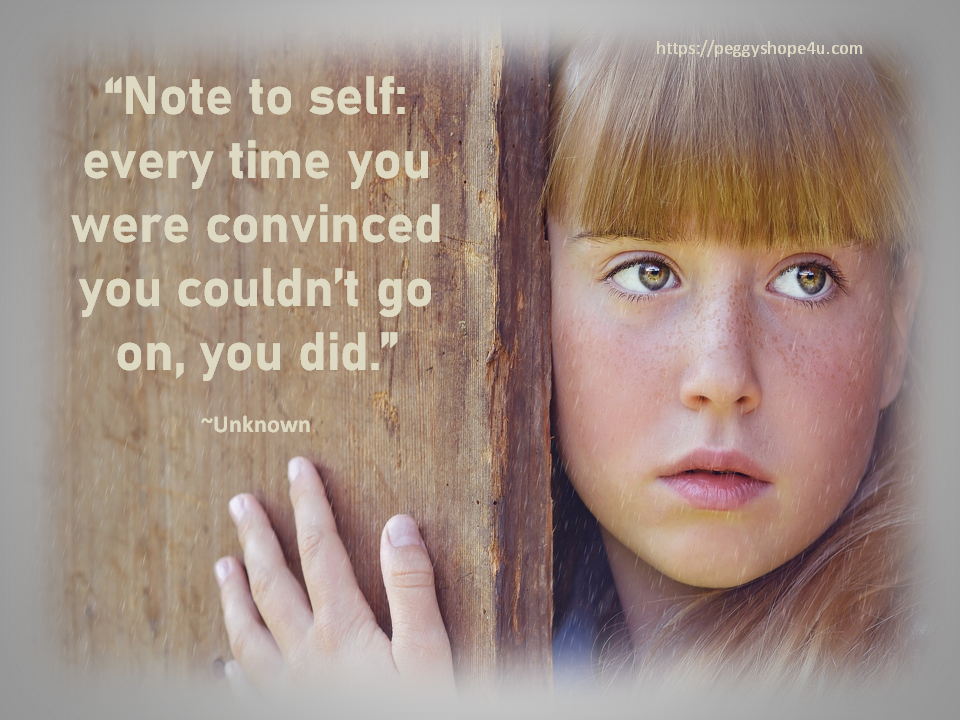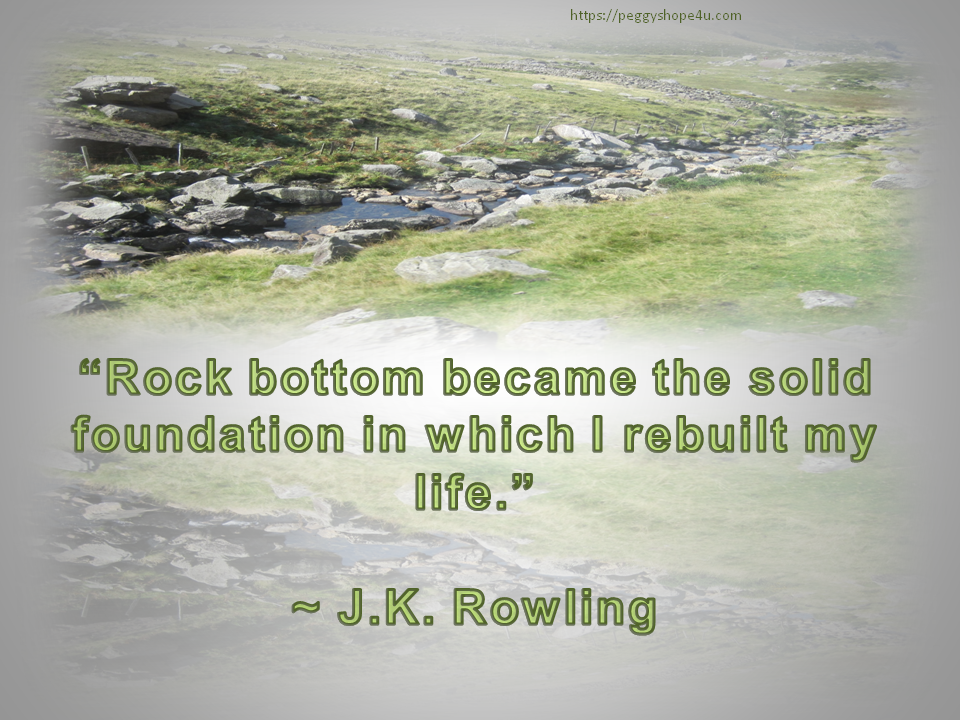Your Trauma Affects Every Reaction

When I began the journey to inspire girls who experienced trauma, women came forward to tell me their stories. Bitter tears stung my eyes as I listened to stories far too similar to mine.
Looking back through the years, I see the little girl in pigtails who judged every movement she made on safety:
Will I be in danger if I walk into that room?
Where can I go where he won’t find me?
How do I make sure someone is around to protect me?
Why can’t anyone see how much I’m hurting?
These were the times that tested me.
My understanding of the world before my seventh birthday was that it was a beautiful place, full of people who loved me.
Trauma takes on many forms. It is often the abuse that occurred during childhood. Sometimes, it can be the aftermath of a significant injury or illness.
You aren’t the only one affected by trauma. The ripple effects touch everyone in your circle of life. You no longer feel safe. Over time, the cause of the trauma disappears, and with the help of loved ones, you return to a nearly healthy life.
The problems often return unexpectedly through a dream or an event that triggers painful memories. Devastation is the legacy of trauma. It never truly goes away.
Emotions Are Difficult To Control
Fear, anger, sadness, and guilt eventually make you exhausted and unable to fight the memories of the trauma that lingers at the edge of your awareness.
Eventually, it becomes the norm to pull away from those you care about to protect yourself. Too many sleepless nights cloud your capacity to cope with the emotions that continually fight for your attention.
Some people turn to drugs and alcohol to dull the pain.
The doctors didn’t know how to treat my piercing headaches and back pain after the car wreck and prescribed opioids and other habit-forming drugs instead of working with me on exercises and massage therapy.
It only took one incident while driving a car to convince me never to take the lousy pills again. My pain was unbearable. I used prescription drugs to kill the pain, but they dulled my ability to think and react correctly. That terrified me.
There were days when the treadmill of continually battling pain with no relief in sight became unbearable. I wanted to escape, but there was no safe way to do it. The reality of being unable to control anything in my life was even more debilitating.
My rollercoaster of emotions made it impossible to move forward and recover. The brain injury only complicated my ability to demand control over my treatment. More than one doctor told me there was nothing they could do to help me if I refused to take their pills.
Thankfully, I was alert enough to understand those pills would only complicate my ability to move forward.
Learn to Recognize Trauma
There is a multitude of events which can cause trauma:
- Physical Assault
- Serious Accident
- Sexual Assault or Abuse
- Natural Disaster – Flood, Tornado, Fire
- War – As a Soldier or Citizen in the War Zone
- Family Member or Close Friend Involved in Serious Accident, Life-Threatening Event, or Died Suddenly
- First Responder to Traumatic Event
Traumatic events can rearrange everything about our lives. Depending on what type of trauma you experienced, some will recover on their own. Others will struggle with depression, PTSD (posttraumatic stress disorder), anxiety, or substance abuse.
Responses to Trauma
The brain reacts immediately and sometimes violently to trauma. We all learned about the “Fight – Flight – or Freeze” reaction in school. Fight-Flight-Freeze is far different from the response we have when a loved one dies of natural causes, or we experience the break-up of the family through divorce.
During a traumatic event, the brain responds immediately by releasing cortisol throughout your system. That action raises your blood pressure and leaches calcium from your bones. The adrenal glands respond by releasing adrenaline, increasing your rate of blood circulation, breathing, and carbohydrate metabolism to prepare your muscles for exertion.
They say it only takes 13 milliseconds for your brain to react to trauma.
During a freeze response, your muscles will become limp, and your metabolism shuts down. A large number of endorphins are released into your body, to numb any pain and reduce stress. You begin to shut down; you are either totally or partially unaware of your surroundings.
I have only experienced the fight response after being startled awake from a deep sleep. Whenever that happens, I come up out of bed, screaming and swinging my arms. If I were candid, this uncontrollable response is terrifying for me. I’m so afraid I’ll hurt someone I love. As much as I would like to cure this response, I have no control over it.
The flight response is something we have all experienced. It’s that funny feeling when you walk down the street late at night and a voice tells you to get out, someone’s watching you. Of the three, this is the only response I’ve ever had any control over.
Healing after a Life-Changing Event
We need to approach the victims of trauma from their vantage point. Listen carefully to what they say and ask open-ended questions. Don’t push for answers. There are always portions of the story too painful to share in the first telling. Empathize with the victim and see if from their standpoint. Try to visualize it as if you experienced the same trauma.
Show love to the victim by being there when they need you and by providing whatever they need to make it through the moment. That’s what it means to be tender-hearted. When I was little, there was no one I could turn to when I was terrified.
Victims need to feel validated. Sympathize with them. Cry the tears they cry. We are all desperate for acceptance and affirmation.
Today, friends call me remarkable in their times of need because I show up. I cry with them. Whenever possible, I bring them food or take them somewhere to get their mind off their anguish.
What I do is what I wish someone had done for me.
With humility, walk beside them in the journey to wellness. Don’t try to take over. You can’t fix anyone who’s not willing. It won’t work. Let them work through the trauma. Your job is to remember your purpose in being there is to help hold them up during the process.
When You’re the Victim
Let’s face it; there will be those who never understand our anguish. Those are the people you will not open up to about your experience. There is no practical reason to increase your feelings of distress by trying to get someone who can’t emphasize to listen to your side of the issue.
Surround yourself with those who feel your pain. People can’t show sympathy when they don’t feel it. Instead, they will look uncomfortable. That’s when it’s time to walk away. There are many of us who have explored the same feelings of distress that you’re experiencing. Look for us; we’re ready to listen.
Find those who have always displayed a kind heart to others. These are the people who have the personal strength to help you get to the other side of grief for all you’ve lost.
Think about all the people who have supported you throughout your lifetime. They will help you through.
Welcome the shoulder that allows you to lean on it when needed. Hold the hand someone reaches out with, to help you find the path you need to take.

Learn more about healing from trauma.
Hi, Peggy, I especially like the part about giving up trying to talk to people who can’t relate and finding people who can. This makes complete sense now… but didn’t in previous years. Indeed, by trying to share my experiences with the wrong people, I was left feeling worthless and invisible.
I recently met a woman who is younger but mirrors all the challenges I faced after the car wreck. It’s truly a release to understand others have faced identical challenges.